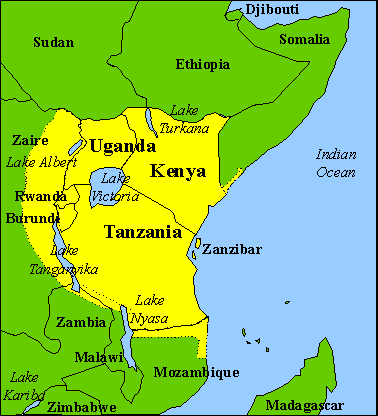 Karibuni! Welcome!
Karibuni! Welcome!
Swahili or Kiswahili is spoken widely in Kenya, Tanzania, and Uganda. It is also spoken by smaller numbers in Burundi, Rwanda, the Democratic Republic of Congo, Northern Zambia, Malawi, Mozambique, Somalia and the Comoros Islands. Swahili is spoken beyond African borders. There are several million native speakers of the language in the diaspora. It enjoys a global following through broadcasting media in various parts of the world. Also, Swahili is taught in many institutions in the U.S., Europe and Asia. It is estimated that about 100 universities in the U.S. offer Swahili courses.
Why study Swahili?
- Learn one of the few languages that is designated by the U.S. Department of State and Department of Defense as a critical need foreign language
- Increase your chances of working with diplomatic missions, international organizations and NGOs in Swahili-speaking countries
- Encounter a different culture right where you and gain new perspectives
- Join a global community of an estimated 100 million speakers of Swahili
- Study abroad in East or Central Africa
- Position yourself for volunteer/ internship opportunities in East & Central Africa
- Fulfill LAS language requirements
- Prepare yourself for research in East Africa
Recent Swahili News
- International Education Week is an annual event that aims to celebrate global education, cultural exchange, and scholarship as well as to raise awareness about the breadth of international education activities and resources available in our community.
- We are thrilled to announce that two of our students, Robert Herbolich and Natalie Klunke, have been awarded highly competitive scholarships. Robert has been awarded the prestigious Critical Language Scholarship (CLS).
- One of our students, Melanie Rohla, was recently awarded the 2018 U.S. Department of State Critical Language Scholarship (CLS) to study Swahili this summer.